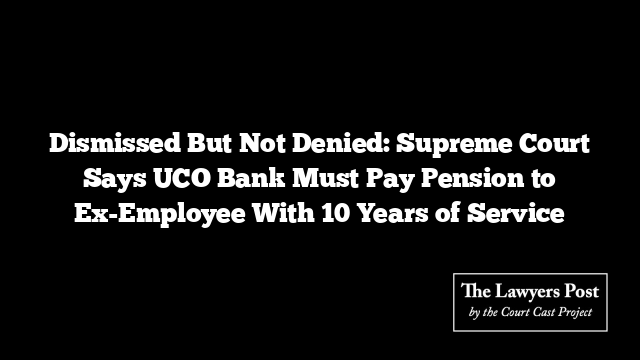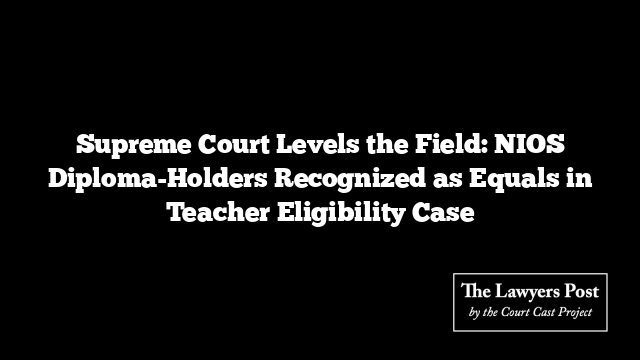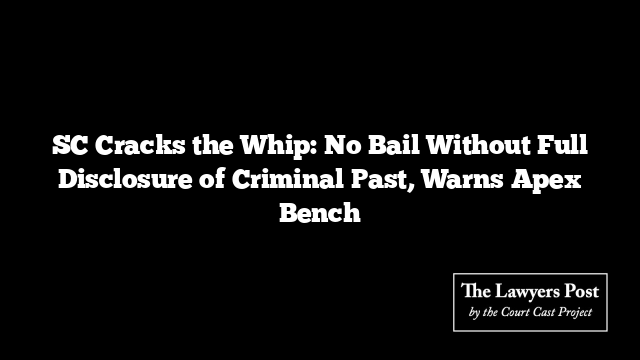Even misconduct can’t wipe out a decade of service—that was the message the Supreme Court sent loud and clear as it shut down UCO Bank’s attempt to deny pension to a former employee it had dismissed years ago.
The top court stood firm behind an earlier decision by the Punjab and Haryana High Court, which had ordered the bank to grant superannuation benefits to the employee—Vijay Kumar Handa—who had been removed after completing over ten years of service.
The Long Road
The drama dates back to 1998, when Handa was accused of assaulting a fellow officer. A year later, he was dismissed. But the story didn’t end there. In 2000, a review by the appellate authority softened the blow—turning the dismissal into “removal with terminal benefits.” The bank didn’t challenge that, and the decision stuck.
Then in 2004, the Labour Court intervened, dialing back the penalty even further and ordering reinstatement with partial back wages. That ruling didn’t last either—five years later, the High Court restored the earlier removal order, maintaining Handa’s right to terminal benefits.
Fast forward to 2010—Handa signed up for pension benefits under the then-prevailing Bipartite Settlement. When the bank still denied him pension, he knocked on the High Court’s doors again and won. UCO Bank, refusing to let go, took the matter to the Supreme Court.
A Legal Tug-of-War
The bank leaned on Regulation 22 of its Pension Regulations, arguing that employees who are removed (as opposed to retiring normally) for misconduct can’t receive pension.
Handa’s response? He pointed to a higher authority—the Bipartite Settlement inked between the Indian Banks’ Association and bank employee unions, which clearly stated that even employees dismissed for serious misconduct are entitled to their superannuation benefits. That agreement carries statutory weight under the Industrial Disputes Act, giving it more teeth than the bank’s internal regulations.
Clause 6(b) of the agreement was particularly damning for the bank’s case. It spells out that even in cases of gross misconduct, the employee is still owed what is due in terms of pension.
The Court’s Word
Justice Ujjal Bhuyan, writing for the bench that included Justice Abhay S. Oka, made it clear: the statutory agreement trumps internal policy. The Court relied heavily on its 2014 ruling in Bank of Baroda v. S.K. Kool, which had affirmed that an employee with over 10 years of service qualifies for pension—even if dismissed for misconduct.
UCO Bank tried to wiggle out by saying S.K. Kool didn’t apply here because, in that case, the employee opted for pension before being dismissed. In Handa’s case, the pension application came after. The Court was unconvinced. The appellate authority’s order granting terminal benefits had already solidified his entitlement.
In the end, the Court dismissed the appeal, upholding both the Single Judge and Division Bench rulings that had sided with Handa.
A ruling that sends a message: if you’ve earned your years, your pension won’t vanish—even if your job does.





